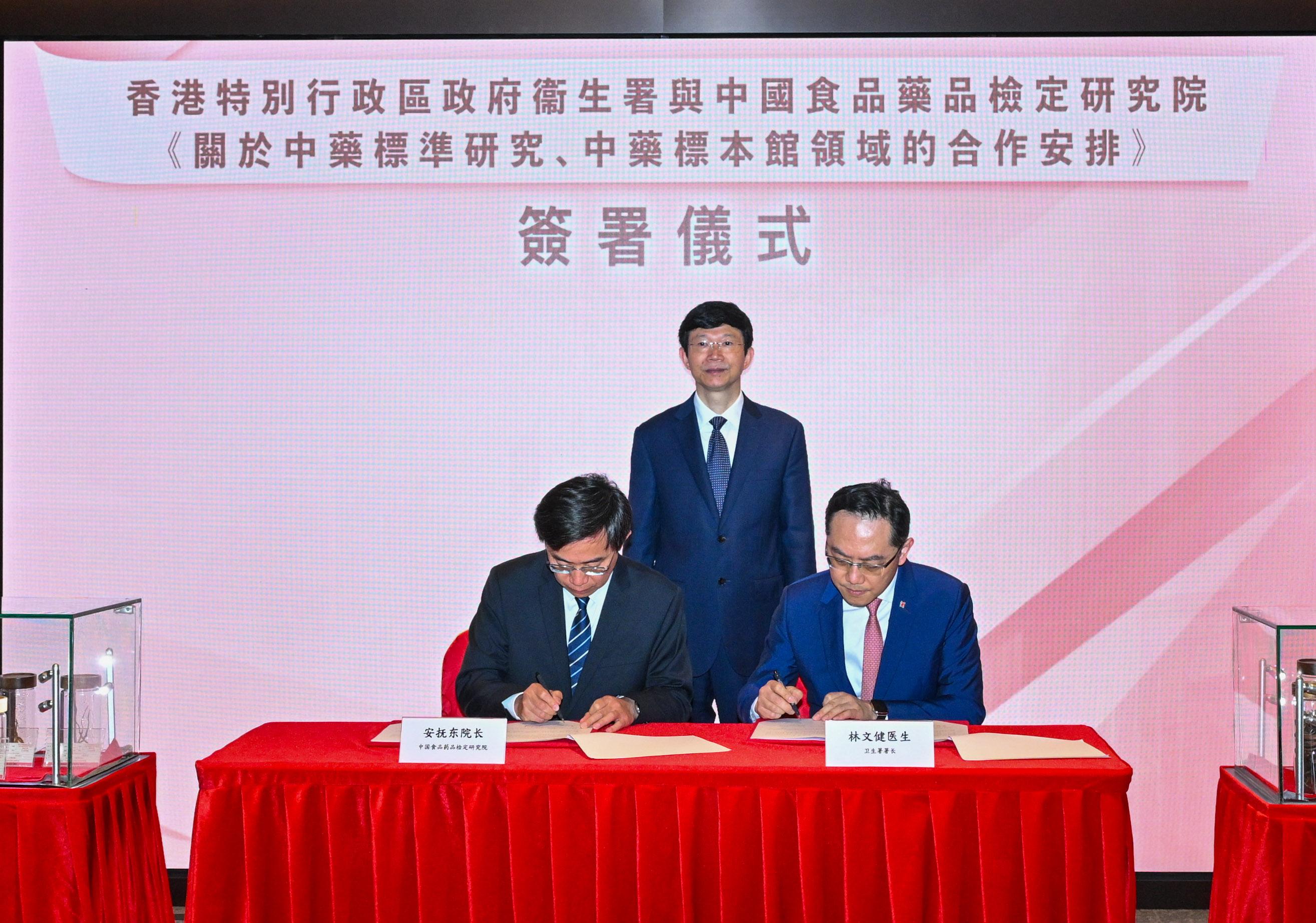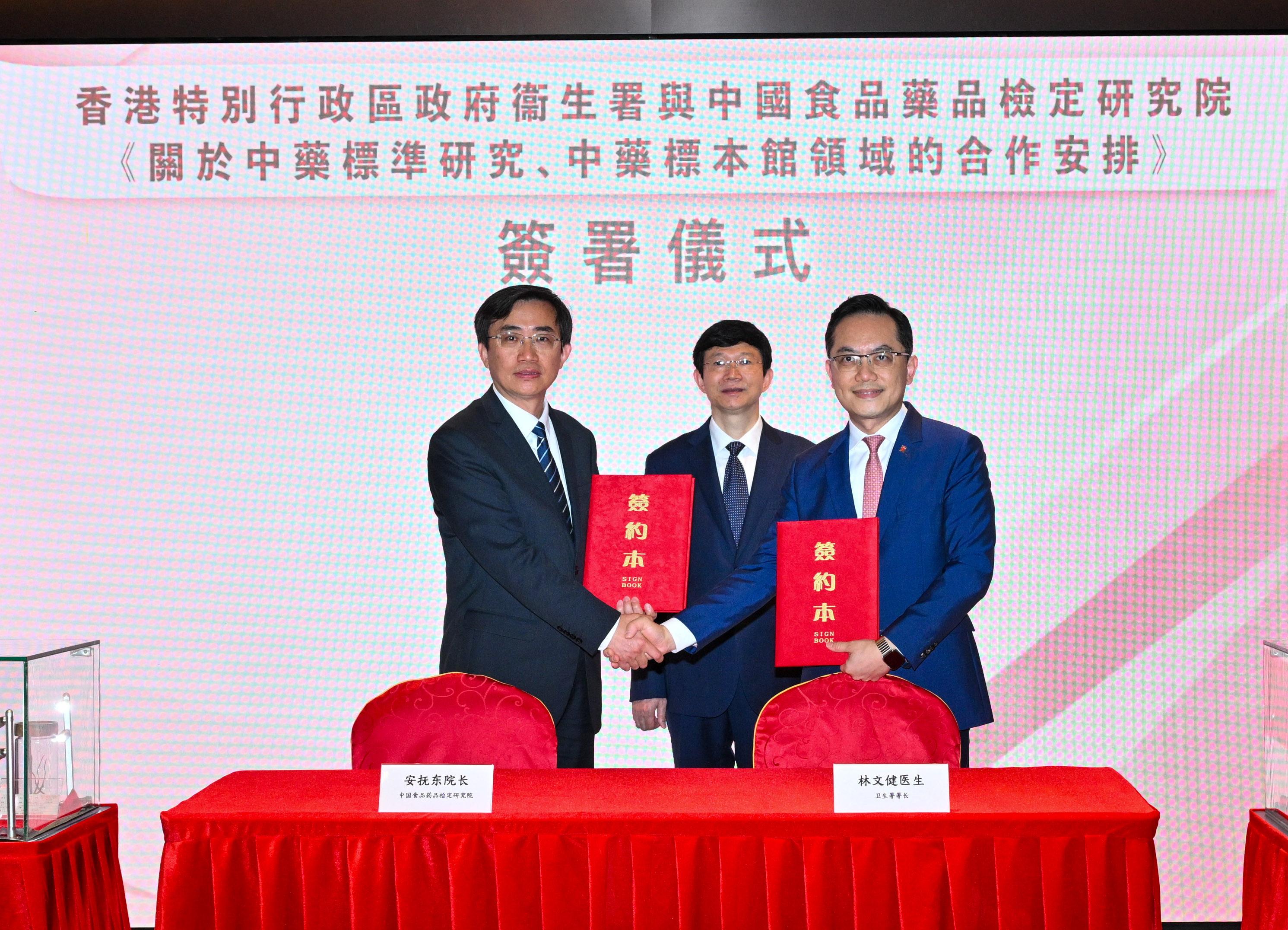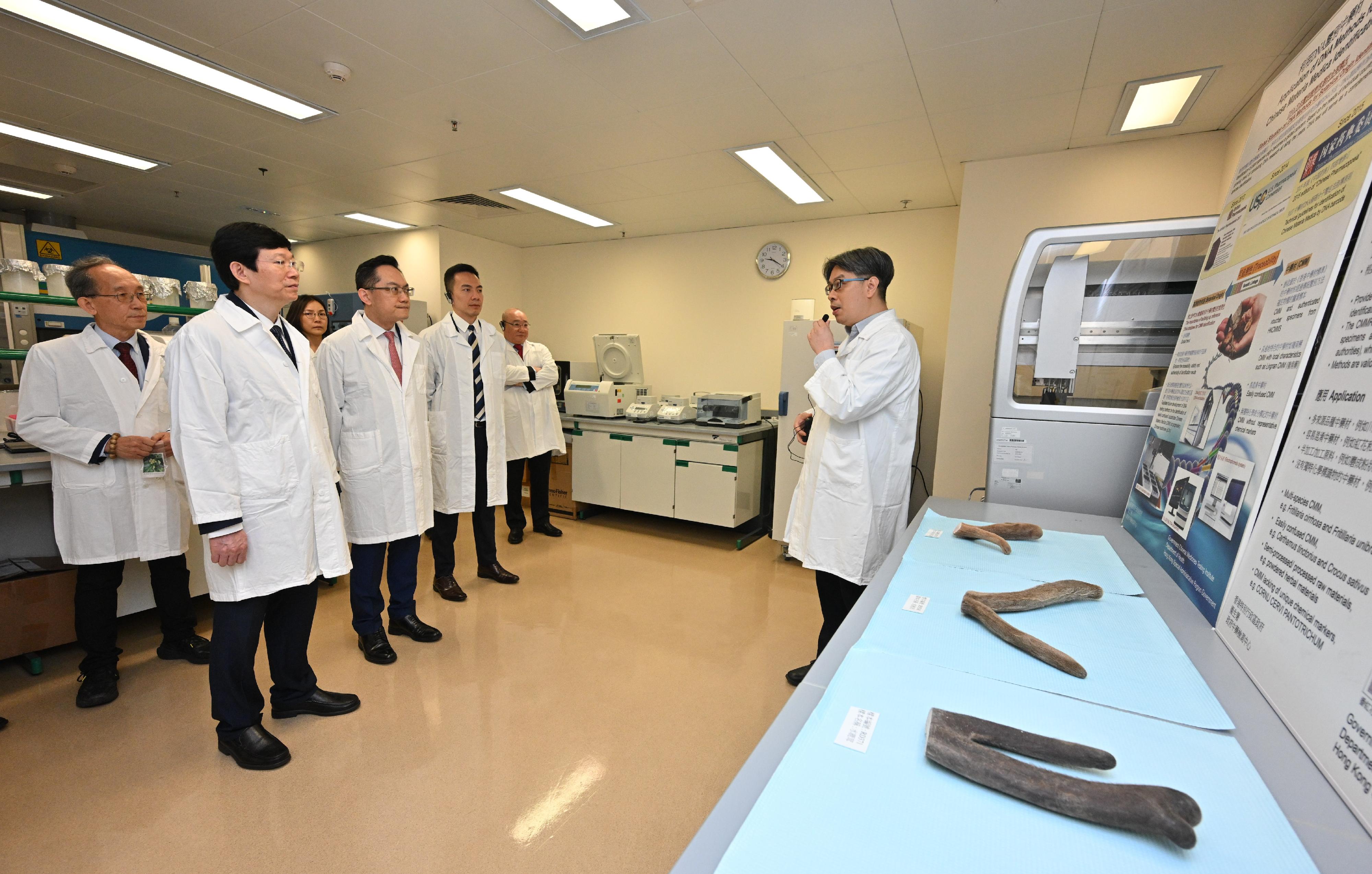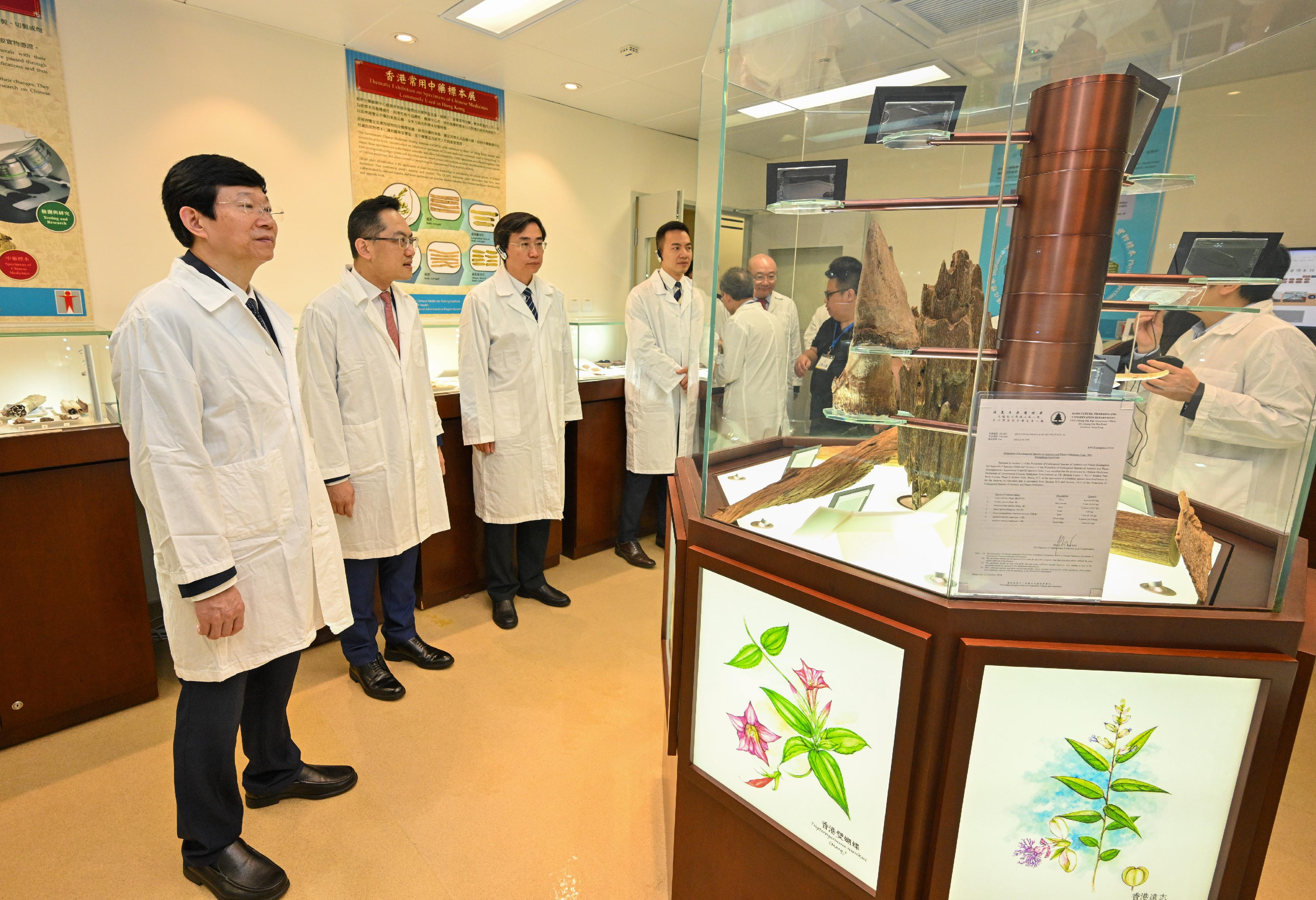The Department of Health (DH) and National Institutes for Food and Drug Control (NIFDC) today (May 9) signed the Co-operation Agreement on Research of Chinese Medicines Standards and on Chinese Medicines Herbarium (Co-operation Agreement) to strengthen technical, talent and academic exchanges, and further promote the modernisation and innovation of Chinese medicines. NIFDC is a subsidiary of the National Medical Products Administration (NMPA).
Witnessed by the Commissioner of the NMPA, Mr Li Li, the Co-operation Agreement was signed by the Director of Health, Dr Ronald Lam, and the Director General of the NIFDC, Mr An Fudong. The areas of collaboration include technical exchanges in the area of developing standards for Chinese Materia Medica (CMM), establishment of collaborative mechanisms in field of Chinese medicines specimens, as well as talent and academic exchanges. The Co-operation Agreement also further facilitates the modernisation and innovation of Chinese medicines, enhances the quality and safety of Chinese medicines with a view to safeguarding public health.
Following the signing of the Co-operation Agreement, Mr Li, on behalf of the NMPA, presented to the Hong Kong Special Administrative Region (HKSAR) Government a collection of 21 CMM specimens. Among them was a set of cordyceps showcasing different growth stages and specimens from various production regions of the Mainland. This will play a significant role in strengthening the identification of CMM.
Speaking at the signing ceremony, Dr Lam said, "Thank you for the continuous support to the HKSAR Government for the development of Chinese medicine and enhancing the collaboration on regulatory strategies and measures with the DH by the NMPA and NIFDC. Today, I would like to express my gratitude to the NMPA and NIFDC for once again gifting precious CMM specimens to the HKSAR Government, which is very important for our work in Chinese medicine testing, research, education, as well as the inheritance and innovation of Chinese medicine culture."
Mr Li, Mr An and their delegation, accompanied by Dr Lam, visited the Government Chinese Medicines Testing Institute (GCMTI) managed by the DH and located at the Hong Kong Science Park on the same day. They were briefed on the latest work on local Chinese medicines testing and research through touring the GCMTI's laboratories and the Chinese Medicines Herbarium. The Digital Herbarium for Chinese Medicines website developed by the GCMTI was also demonstrated to the delegation during their tour.
The DH has been closely collaborating with the NMPA and the NIFDC, actively promoting exchanges in Chinese medicines testing, reference standard research, and the Chinese Medicines Herbarium. The NMPA and the NIFDC offered technical advice and valuable opinions to the Chinese Medicines Herbarium in the GCMTI when it was established in 2017. They also arranged to gift precious and representative specimens of commonly used CMM to the HKSAR Government to enhance the collection of the Chinese Medicines Herbarium. These physical specimens will serve as useful references for the Chinese medicines research and industry in Hong Kong, facilitating their advancement towards high-quality development. The first batch of the specimens has been on display at the GCMTI since 2019. Furthermore, since its establishment, the GCMTI has completed 12 research and thematic projects, the results of which have been uploaded to the website of the Chinese Medicine Regulatory Office under the DH.
The permanent GCMTI building is expected to be commissioned in phases starting from the end of 2025. It will house a Chinese Medicines Herbarium Laboratory to collect CMM and the specimens of the animals and plants from which they derived. The herbarium will be open to the public, the trade and international research institutions. The GCMTI will continue to develop a set of internationally recognised reference standards for Chinese medicines and related products by employing state-of-the-art technology and through scientific research, and help empower the industry through transfers of technology to strengthen the quality control of products and promote high-quality development of Chinese medicines.
Follow this news feed: East Asia











